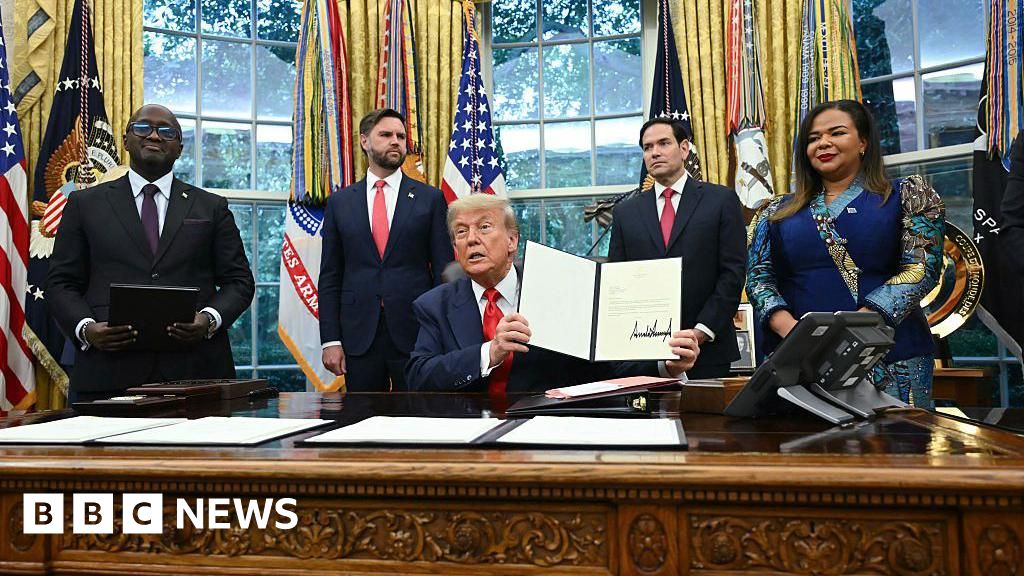DR Congo-Rwanda ceasefire deal still faces many challenges

DR Congo-Rwanda Ceasefire Deal Faces Significant Hurdles Despite US Backing
A ceasefire agreement between the Democratic Republic of Congo (DRC) and Rwanda, brokered with US support, faces considerable challenges despite commitments from both sides to disarm and disengage their alleged proxies in eastern DRC. The deal, intended to bring an end to years of conflict, is threatened by the presence of numerous non-state armed groups, complex economic factors, and lingering mistrust between the two nations.
Fragile Peace Amidst Numerous Armed Groups
The agreement, recently signed in Washington, aims to create conditions for the return of hundreds of thousands of people displaced by the ongoing conflict. However, just hours before the signing, the Codeco militia, one of the many active armed groups in the Ituri province, attacked a displaced persons camp, killing ten people. This incident highlights the difficulty in ensuring all groups adhere to the ceasefire.
“The sheer number of armed groups operating in eastern DRC presents a monumental challenge to any peace agreement,” explains Dr. Stephanie Wolters, a Senior Research Fellow at the South African Institute of International Affairs, specializing in conflict resolution in the Great Lakes region. “These groups have diverse motivations, ranging from ethnic grievances to control over resources, and their willingness to cooperate is far from guaranteed.”
Economic Incentives and Resource Control
Eastern DRC is rich in mineral resources, including those crucial for modern technology like electric car and mobile phone batteries. This abundance creates significant economic incentives for rebel groups to fight for control over valuable territory. The current peace deal does not explicitly address alternative economic opportunities that might dissuade these groups from continuing their activities. Integrating them into the already under-resourced Congolese armed forces is also unlikely to be a sufficient deterrent.
The potential for preferential access to the DRC's mineral wealth for the US, reportedly a key incentive for President Trump’s support of the peace process, is also a sensitive issue. Many Congolese citizens are wary of foreign powers exploiting the country's resources without tangible benefits for the population.
Rwanda's Role and Lingering Mistrust
A key element of the agreement concerns the withdrawal of Rwandan forces from eastern DRC. The US position is that Rwanda will withdraw once the Hutu-led Democratic Forces for the Liberation of Rwanda (FDLR), which Rwanda accuses the DRC of backing, is dismantled. Rwanda claims the FDLR aims to overthrow the Rwandan government. This withdrawal is contingent on the disarmament of the FDLR, a group with a long and complex history in the region.
Rwanda has consistently denied having troops on the ground in eastern DRC, despite credible reports suggesting their active support for groups like M23. If the US can successfully convince Rwanda to withdraw its forces, it would be a significant achievement for both Washington and Kinshasa. However, the deep-seated mistrust between the two countries remains a major obstacle.
Historical Context: A Region Plagued by Conflict
The conflict in eastern DRC is rooted in a complex web of historical grievances, ethnic tensions, and competition for resources. The region has been plagued by instability since the Rwandan genocide in 1994, which led to a massive influx of refugees and armed groups into eastern Congo. The presence of the FDLR, composed of some individuals who participated in the genocide, has been a constant source of tension between the DRC and Rwanda.
Current Challenges and Future Prospects
The success of the ceasefire agreement hinges on several factors, including:
The willingness of all armed groups to adhere to the ceasefire. The ability of the DRC government to provide security and basic services to its citizens. The resolution of underlying economic grievances. The rebuilding of trust between the DRC and Rwanda.
“While the US-backed peace deal is a welcome step, it’s crucial to recognize that it’s just the beginning of a long and arduous process,” notes Professor Pierre Englebert, a scholar of African politics at Pomona College. “Sustainable peace in eastern DRC requires a comprehensive approach that addresses the root causes of the conflict and involves all stakeholders, including local communities.”
Without a concerted effort to address these challenges, the ceasefire agreement risks becoming another failed attempt to bring lasting peace to the troubled region.
Originally sourced from: BBC News Africa
